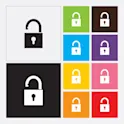
Open science and peer review
19 Jun 2015
Open Science and scholarly publishing roundup – June 19, 2015
Selected news, views and information on Open Science and scholarly publishing from the past week

Open science and peer review
19 Jun 2015
Selected news, views and information on Open Science and scholarly publishing from the past week

Open science and peer review
12 Jun 2015
Selected news, views and information on Open Science and scholarly publishing from the past week

Open science and peer review
08 Jun 2015
This is a short point-by-point discussion of the major issues and discussion points which arose at spring conferences and which would seem to represent key concerns regarding open-access publishing.

Open science and peer review
08 Jun 2015
Selected news, views and information on Open Science and scholarly publishing from the past week

Open science and peer review
29 May 2015
Selected news, views and information on Open Science and scholarly publishing from the past week Discover Magazine Blog What to do about a slow peer reviewer? The Guardian How has publishing changed in the last 50 years, and what has this meant to scientists? The Guardian How can we stop big science hoovering up all the research funding? Science 2.0 Editorial independence or extortion? Frontiers sacks 31 editors The Independent Long author-lists on research papers are threatening the academic work system Research Information Open-access books slowly on the rise, says PCG LSE Incentives for open science: New prizes to encourage research integrity and transparency in social science PLOS Blog Support Open Access publishing with the click of a button PLOS Blog Once more, fraud in Science: the retracted study on attitudes toward gay marriage The Conversation The ‘train wreck’ continues: another social science retraction ABC News Elsevier clashes with researchers over open access publishing for academic texts The Australian Open access lobby attacks Elsevier Times Higher Education The peer review drugs don’t work

Open science and peer review
22 May 2015
Selected news, views and information on Open Science and scholarly publishing from the past week Chronicle of Higher Education ‘We need to take a look at the data’: how 2 persistent grad students upended a blockbuster study New York Times Retraction sought in study on views of gay marriage Science Open-access publisher sacks 31 editors amid fierce row over independence Frontiers Blog Frontiers acts to defend distributed editorial independence The Conversation Publisher pushback puts open access in peril Research Information Elsevier rebuffs COAR/SPARC criticism of sharing and hosting policy Retraction Watch What should an ideal retraction notice look like? Frontiers in Ecology and Evolution Blind trust in unblinded observation in Ecology, Evolution, and Behavior BioMed Central blogs The future of peer review NY Times Fake diplomas, real cash: Pakistani company Axact reaps millions Boston Globe The exploitative economics of academic publishing Library Journal U. Minnesota Press, CUNY grad center develop hybrid publishing platform University of Delaware University of Delaware Library joins COAPI open access coalition Campus Technology CU Boulder adopts Open Access BBC Ocean’s hidden world of plankton revealed in ‘enormous database’ BBC Opal citizen science project expands across the UK University World News Major research trends – clustered, international, […]

Open science and peer review
20 May 2015
Selected news, views and information on Open Science and scholarly publishing from the past week The Guardian Will traditional science journals disappear? Fusion This scientific paper has 2,863 authors. How? BBC Top science panel to advise European Commission BioMed Central Blogs A beginner’s guide to peer review: Part One Manchester Evening News University of Manchester spends more on journal subscriptions than any other institution in UK Research Information An academic approach to sales and marketing in publishing The Guardian Will traditional science journals disappear? Wired Why publishers should not fear Facebook’s content megacity Harvard Gazette Robert Darnton closes the book Publishers Weekly The changing face of STM publishing University of New Mexico News UNM Libraries opens the digital door to a treasury of information The Guardian Super-scholars: MPAA offers $20,000 for academic research in copyright battle Library Journal Why internet searches are not enough | peer to peer review BioMed Central blog Gigascience pushes metabolomics Open Data & training Universität München Ein neues Modell des Publizierens

Young Minds
01 May 2015
A couple of weeks ago a wonderful hashtag was making its way around Twitter, with female scientists all over the world sharing photos of their feet to show a day #InMyShoes.

Young Minds
30 Apr 2015
Note: This blog post was originally published as a blog on Scientific American (http://blogs.scientificamerican.com/frontiers-for-young-minds/even-scientists-play-with-their-food/) Have you ever been told not to play with your food? Perhaps been told that it isn’t polite or disrespects the other people at the table? I have a confession: sometimes I play with my food. I can’t help it! There are certain things I have learned throughout my life, in science classes or otherwise, that just stick with me – and I just can’t help myself. Three of the worst offenders have been outlined below. Yogurt Tension Gashes Context: As a structural geologist I have spent a fair amount of time staring at deformed rocks and trying to figure out how they ended up that way. Huge tectonic forces over time, moving of faults, etc. Now look at the example below. How do you think that those cracks could have formed in the darker sandstone so that they could be filled in later with the white minerals? Why did they form all lined up in a row like that? What possibly could have caused a feature like this to form? The food: A nice, freshly opened container of yogurt (preferably plain and without very much added sugar). […]

Open science and peer review
21 Apr 2015
Frontiers Co-Founder and CEO Kamila Markram sat down with Euroscientist to discuss how Frontiers is designed to remedy some of the shortcomings of the academic publishing process

Young Minds
27 Feb 2015
When one of the researchers asked how you should then go about scaling up to older audiences, the speaker laughed and delivered a punchline: “You don’t.”

Young Minds
20 Feb 2015
Quite often when I am looking at photos, I just feel like something is missing. It is not a criticism of the light or the composition, but rather that something is, quite literally, missing: a scale.

Open science and peer review
05 Oct 2014
By Carl Senior By encouraging the generation of a co-authored commentary both the reviewer and the author can work together in a collegial and constructive environment to expand personal networks and in turn support the continued development of science. The Frontier’s portfolio continues to expand and as it does our innovative review strategy is being recognised more and more as being at the very edge of cutting-edge innovation. Recently such innovation was recognised with the prestigious Gold Award from the Association of Learned and Professional Society Publishers (ALPSP). Such a recognition acknowledges the most innovative strategies that support the open-access publication process and those individuals who drive it forward. Indeed, in receiving the award Professor Kamila Markram dedicated it to the community of open-access researchers who support the Frontier’s process and noted that ‘…their continued dedication and faith in the Frontier’s open-science platform that is helping to transform scholarly publishing and the dissemination of articles in the Internet era’ (Markram, 2014). Yet even with the acknowledgement of the ALPSP Gold Award we should not stand idle but continue to expand the boundaries of innovation. This is especially relevant for the more ‘junior’ journals in the Frontier’s canon such as Frontiers […]

Young Minds
21 Jul 2014
Frontiers for Young Minds, the science education initiative where kids review articles by leading scientists, has been included in The Association for Library Service to Children’s Great Websites for Kids

Young Minds
24 Apr 2014
Frontiers for Young Minds, the science education initiative where kids review articles by leading scientists, officially launches this week at the USA Science and Engineering Festival in Washington D.C. Frontiers for Young Minds is a web-based science journal that involves young people in the review of scientific articles with the help of scientists who act as mentors. It empowers young people by giving them a decisional role in the process of science communication and helps to engage the next generation of scientists. The initiative has so far involved 86 young people, aged 5 to 16, who act as reviewers, and 79 mentors. Popular articles include “The amazing history of neuroscience”, “Facebook, being cool and your brain: what science tells us” and “The scientific significance of sleep talking”. The pilot project was announced at the Annual Meeting of the Society for Neuroscience in November 2013 and has been enthusiastically received by scientists, children, schools and families across the world. The official launch at the USA Science and Engineering Festival showcases the new design of the Frontiers for Young Minds website with a selection of 20 new science papers, written in a language that everyone can understand. Join us at the Frontiers […]
Get the latest research updates, subscribe to our newsletter